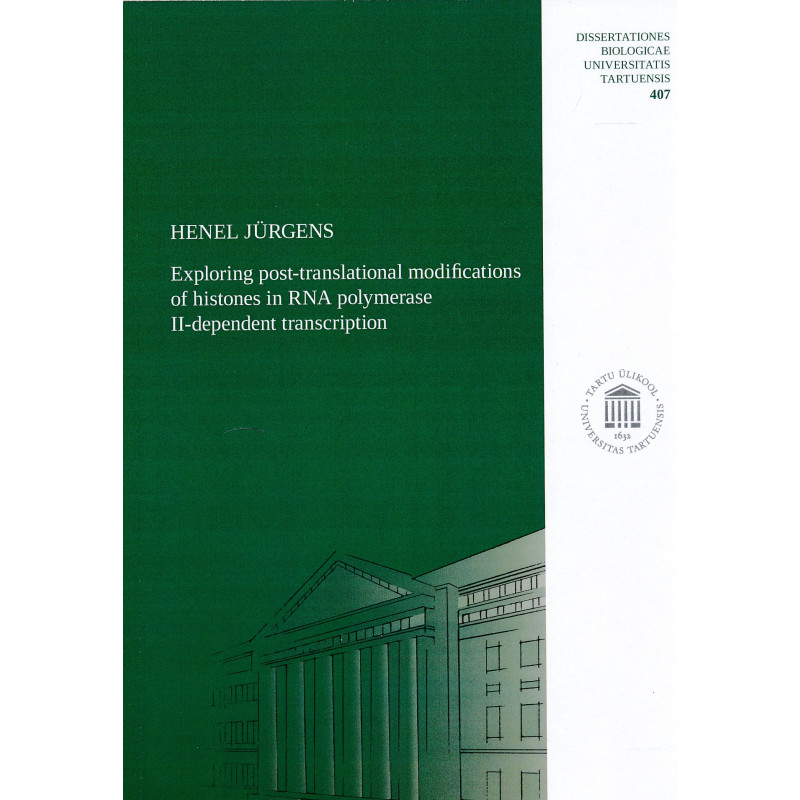



Tartu : University of Tartu Press, 2022
ISBN: 9789916270622
146 pages : illustrated ; 25 cm
Dissertationes biologicae Universitatis Tartuensis ; 407
Softcover new book
Doctoral theses defended at the University of Tartu, summary in Estonian
In eukaryotic cells, DNA is packed with histone proteins into a complex called chromatin. Although DNA is very tightly folded, chromatin structure is dynamic and becomes available to the enzymes and processes that take place on the DNA template, including RNA polymerase II-mediated (RNAPII) gene transcription. One of the key factors that control DNA accessibility are post-translational modifications (PTMs) of histones. PTMs can either directly influence chromatin compaction or serve as binding sites for effector proteins recognizing these marks and recruiting transcription machinery or regulatory factors to specific DNA regions. It is well established that PTMs are crucial in epigenetic regulation of chromatin and transcription, but several aspects of their mechanistic details and regulatory dynamics are still not known. This thesis explores the mechanisms of RNAPII transcription and PTMs and their binding factors using Saccharomyces cerevisiae as a model. To clarify how epigenetic landscapes are established and maintained, the spreading and turnover mechanisms of the methylation pattern of histone H3 lysine 36 (H3K36) was evaluated. This study demonstrates a relatively short-term persistence of methylation after recently occurred transcription and replication-dependent dilution and passive demethylation by demethylases contribute to the turnover of H3K36 methylation mark. The second objective of this study was to explore the importance of histone modifications in cells where transcription is hampered by depletion of one of the RNAPII subunits. It was found that in these stress conditions cells are not able to respond to occurring DNA damage and histone acetylation becomes essential for cell viability. In addition, this study analysed the essentiality and role of effector protein Taf14 reader domain YEATS that binds to acylated histones. The interaction targets of YEATS domain were clarified in vivo and found that it participates in transcription pre-initiation complex stabilization. Results presented in this thesis create new knowledge on the molecular mechanisms of transcriptional regulation and the involvement of PTMs and their reader proteins.